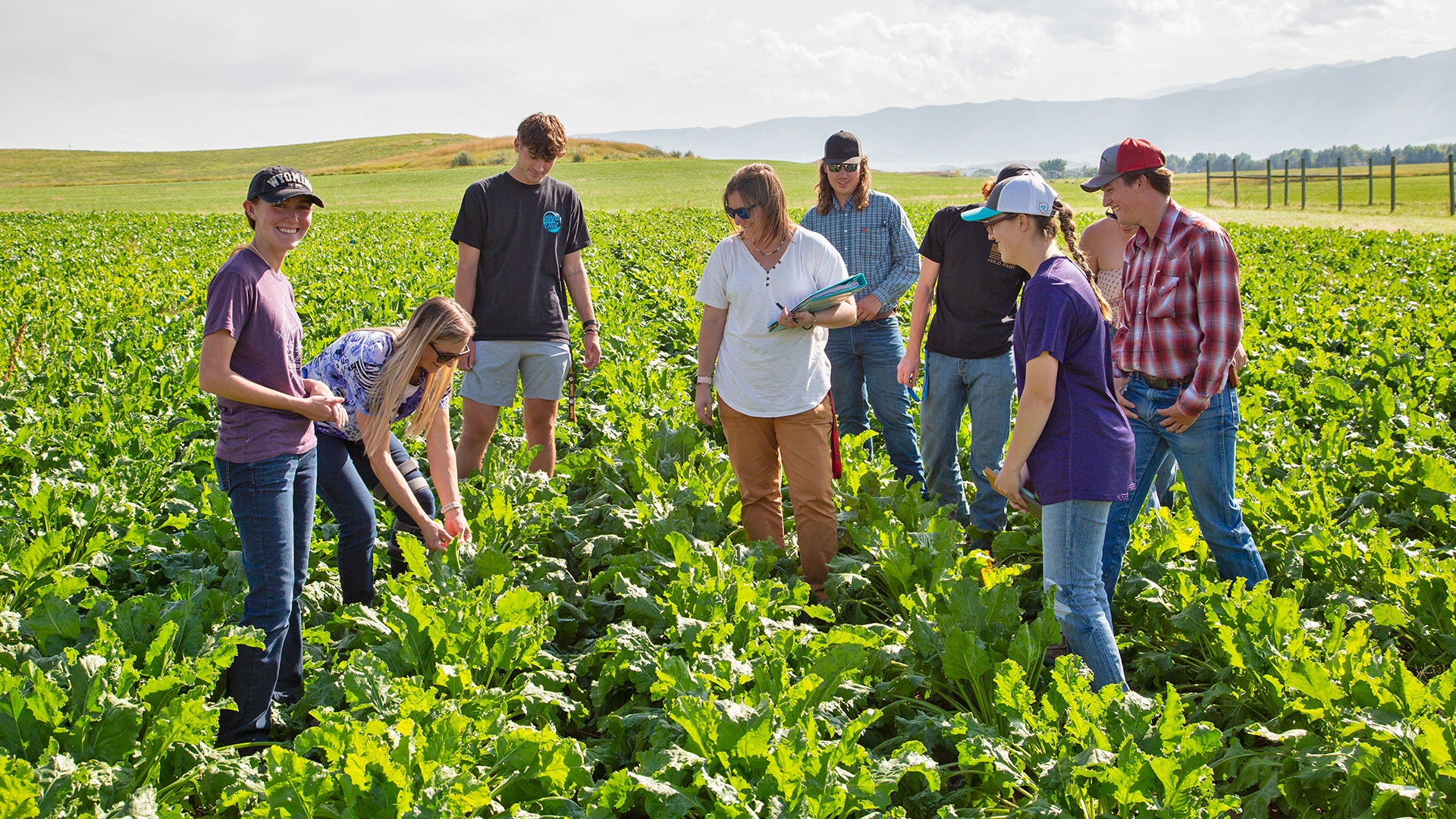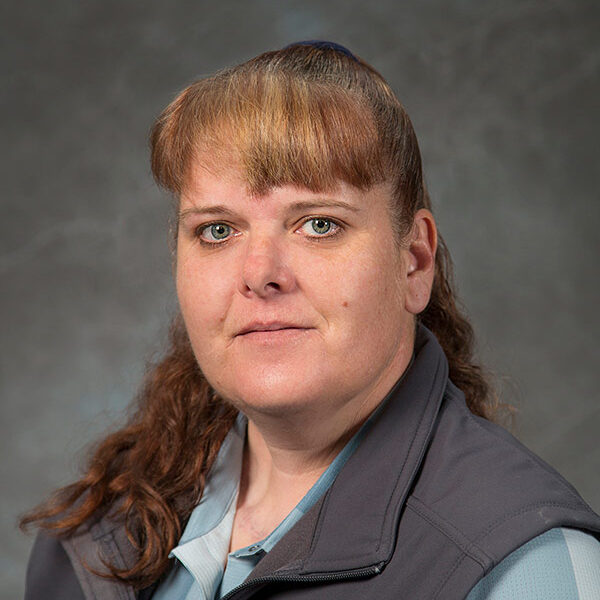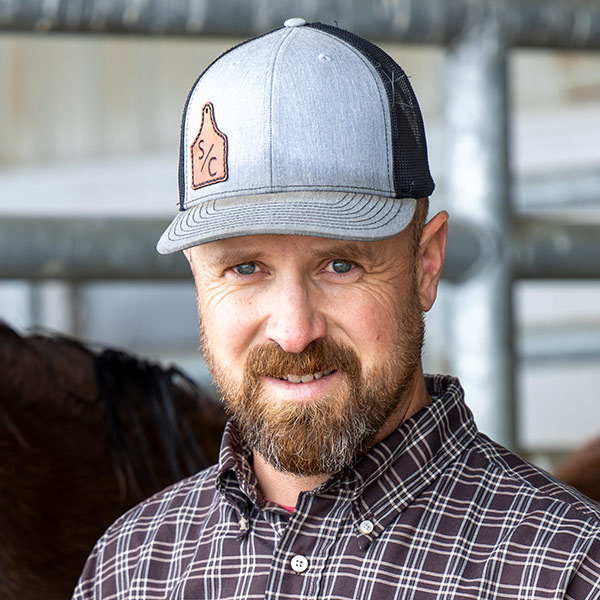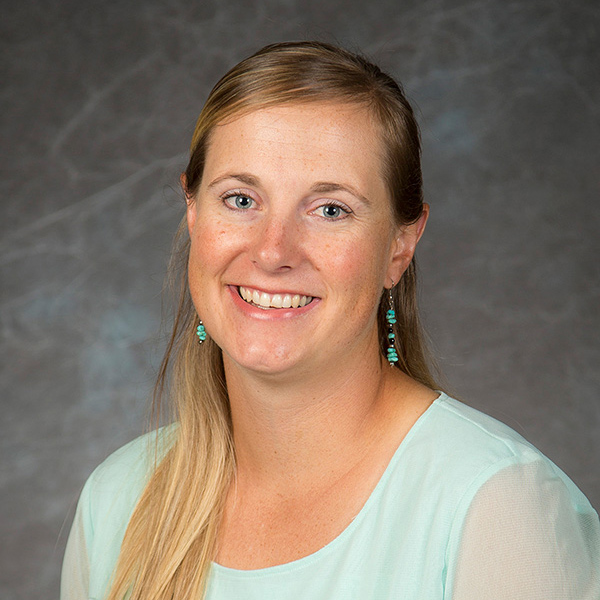Overview
Sheridan College’s General Agriculture Program equips students with a strong foundation across diverse agricultural disciplines, preparing them to transfer into specialized programs such as Agricultural Communication and Agricultural Education.
In addition to core requirements in livestock production, range management, horticulture, agricultural economics, and science, the program offers flexible electives that enable students to transfer seamlessly into a wide variety of four-year agricultural, degree pathways.
Why Sheridan College?
- Learn in the state-of-the-art, Mars Agriculture Center, and through hands-on field experiences.
- Tailor your course of study to your interests with a variety of program areas, including Animal Science, Ag Education, Ag Communication, Horticulture, and Rangeland Management.
- Students can seamlessly transfer to Sheridan College’s Management and Leadership Bachelor’s of Applied Science Degree or to another college or university.
World-Class Facilities
The Mars Agriculture Center is a 16,000 sq. ft. state-of-the-art building with top-notch learning environments for a variety of disciplines within the Sheridan College Ag Department. It also encompasses outdoor learning spaces such as the field lab, livestock barn, farrier barn, and greenhouses.
The Sheridan College is the only community college in the state that has a commodities room to provide real-time market analysis and education. The room is complete with 12 workstations, a live feed of the current stock prices that wraps around the room, and a floor to ceiling glass wall with a smart tint that can transform into a space to take notes.
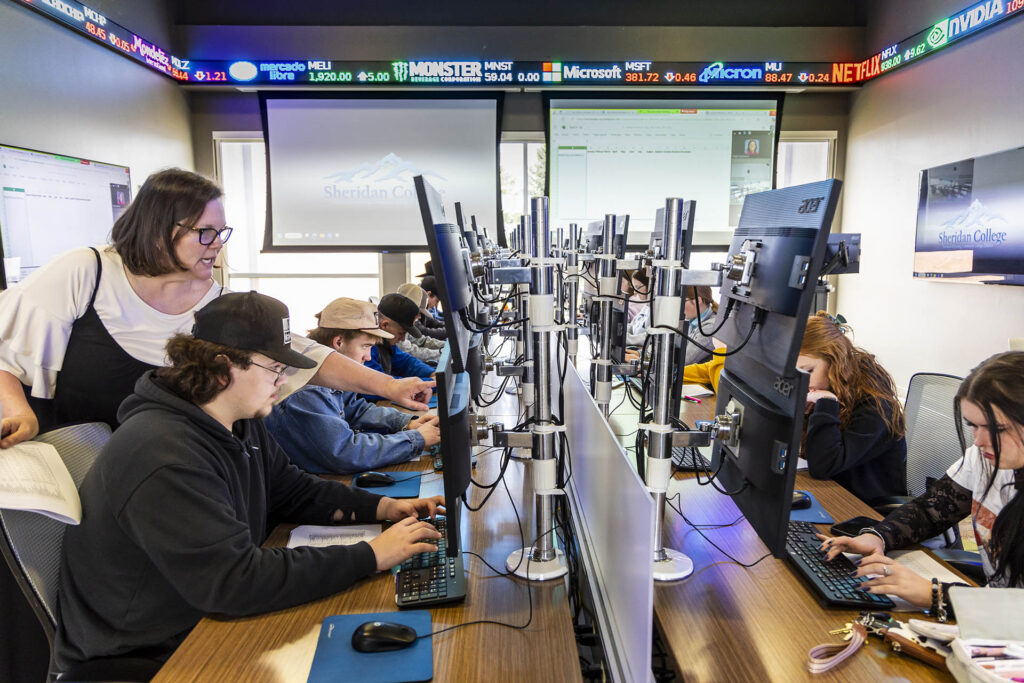
The Sheridan College Agriculture program as four professional teaching greenhouses in addition to the outdoor field lab space.
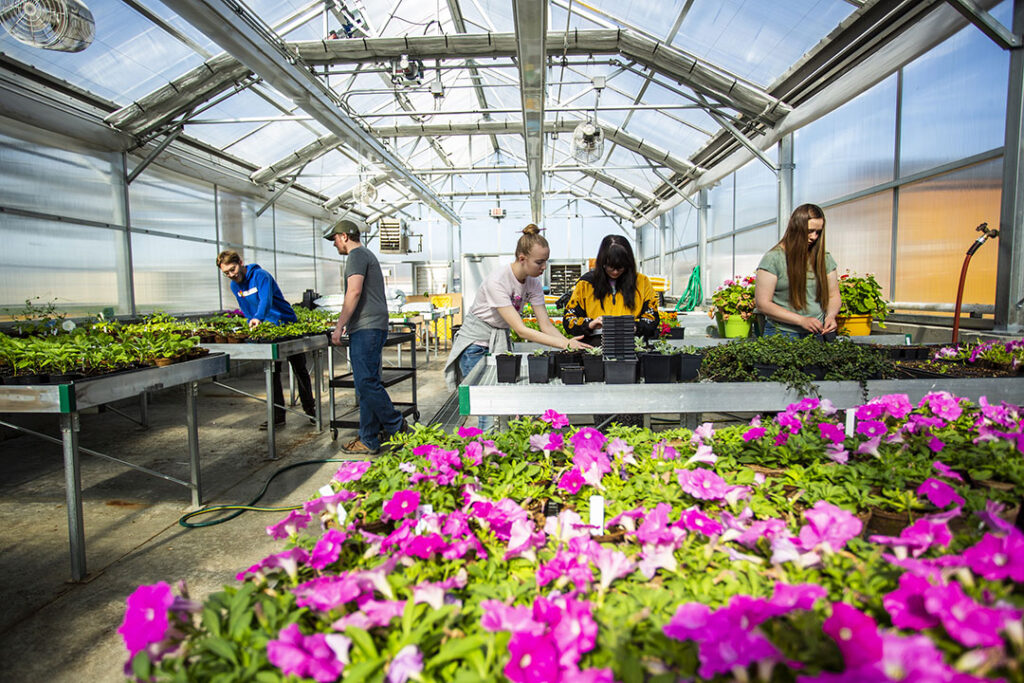
The Herbarium houses over 2500 preserved, pressed plant specimens for plant ID and plant research activities.
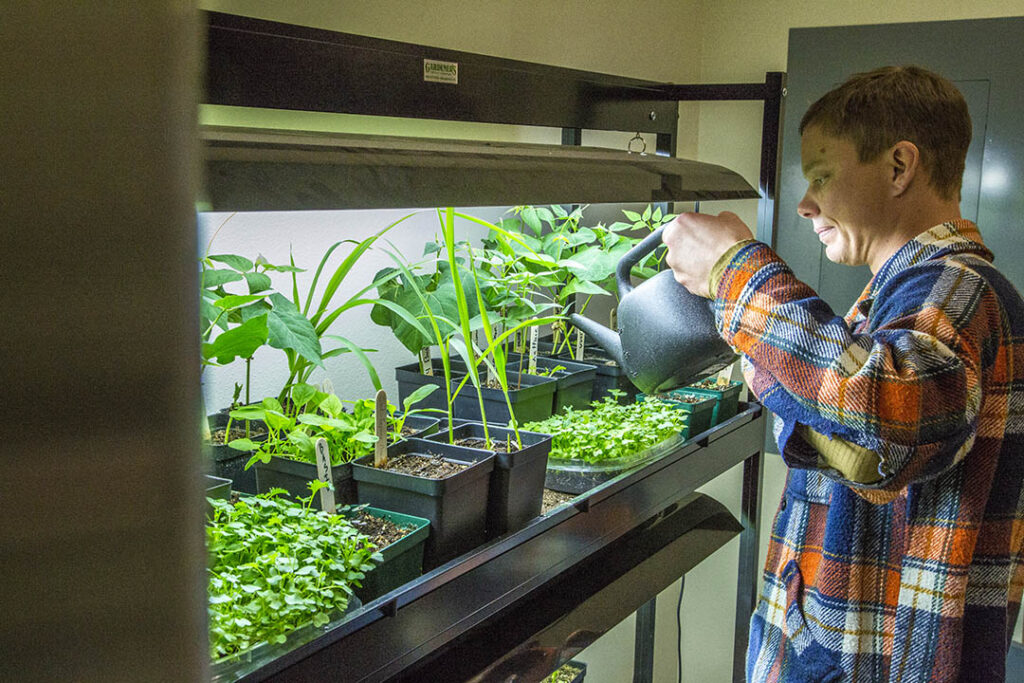
The livestock barn is a 4,000 sq ft learning space that houses the colleges livestock. It includes 8 pens that allow livestock to access both the inside and outside. Pens are adjustable allowing for animals to be housed in one larger pen when they first arrive providing comfort or housed in individual pens which is necessary when students conduct feeding trials to calculate feed efficiency.
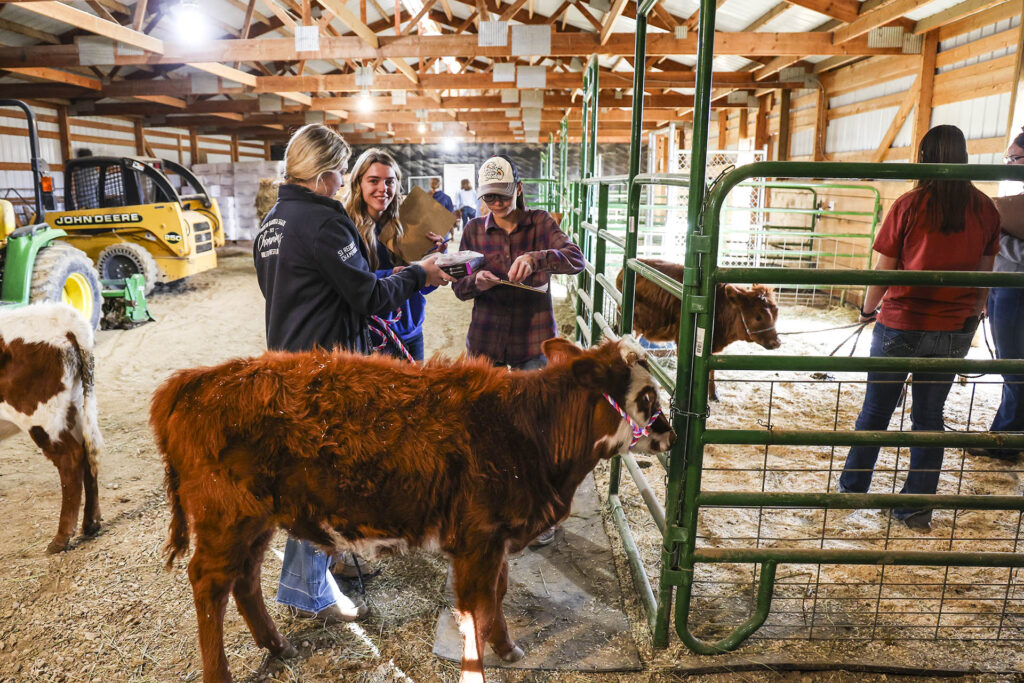
The new science labs support small laboratory classes in plant science sciences, soil science, animal science, and genetics. They are equipped with a variety of modern technological tools used in these areas of science.
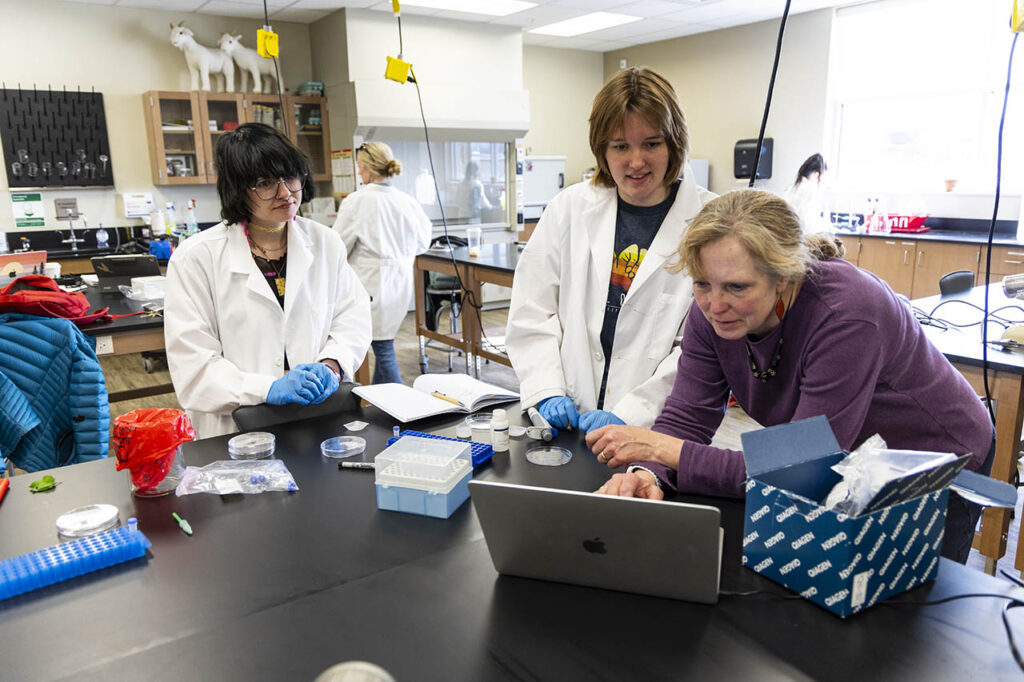
Over 2.5 acres of field lab space, featuring hop vines, orchard, vineyard, and rangeland plant spaces as well as free range chickens. The hops are harvested every year in collaboration with our local Black Tooth Brewing Company.
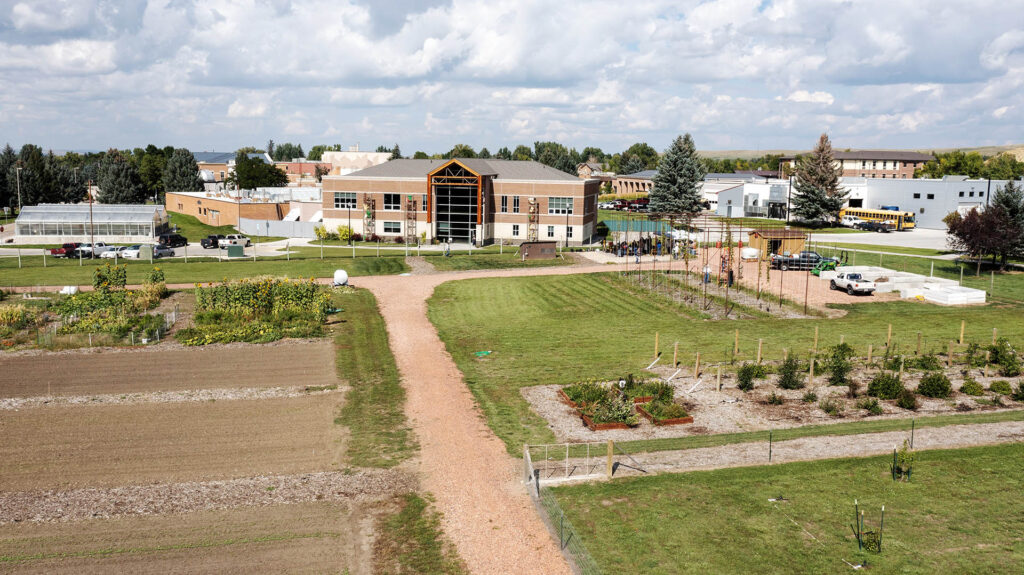
The farrier barn is a large, heated space with non-slip flooring to accommodate a dozen live horses. There are 13 shoeing stations equipped with forges, anvils and tools needed to trim and shoe as well as additional space to learn.
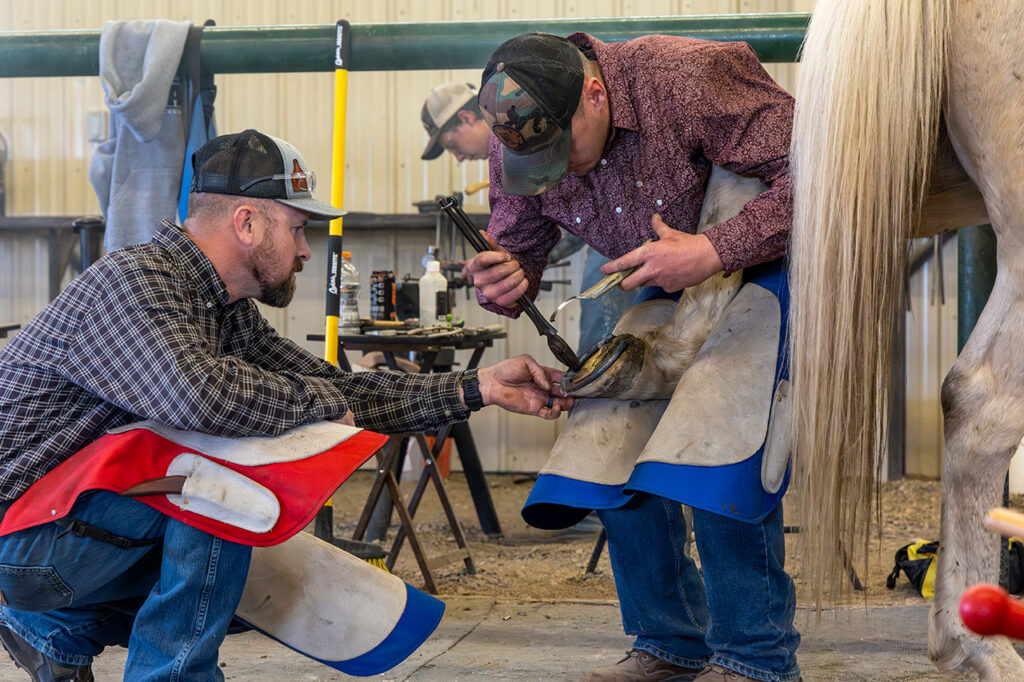
Careers & Industry Outlook
Agriculture scientists conduct research, study agriculture systems, manage natural resources, and educate others about the agriculture industry.
Industry Projections
- The U.S. Bureau of Labor Statistics predicts more than 3,100 new jobs will be added to the Agriculture and Food Science field from 2016-2026, an increase of 7 percent
- There are also many jobs in the agriculture education sector.
Job Types
Sheridan College’s Associate of Science in General Agriculture will provide the foundation of knowledge and skills for you to further your education and ultimately, jobs across numerous fields. A degree in General Agriculture can lead you to a career like:
| Extension Educator |
| Food Scientist |
| Biological Technician |
| Agriculture Science Technician |
| Ag Marketer |
| Farmer / Rancher |
| Landscape Manager |
| Agriculture Instructor |
| Farm Manager |
| Ag Organization Executive Director |
Curriculum
Associate of Science
Explore the courses and electives available to you with our Associate of Science in General Agriculture.
Program Outcomes
- Design solutions to real-world agricultural issues using the scientific method.
- Interpret the effects of regulatory issues on the local, national, and global agricultural industry.
- Apply best practices for plant and/or animal production.
- Evaluate agricultural practices as they relate to sustainability.
Scholarships
We make it easy. $3.7 million in scholarships awarded annually.
Financial Aid
Let us help you navigate the numerous financial aid opportunities available.
Faculty
Our Agriculture Department faculty are enthusiastic and approachable. They will make sure you learn the foundational skills to further your education or find a job following graduation. Sheridan College’s strong relationships with local and national industries in rangeland management, wildlife management, and agriculture present students with unique opportunities to expand their college experiences.
